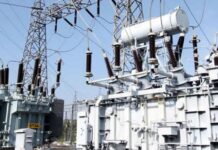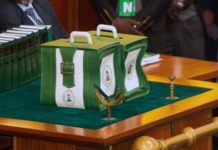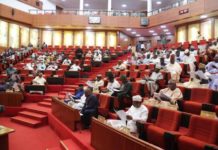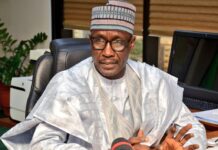
Debt Servicing: Eight States to Pay N424bn in 2025
Eight states are to pay a combined N424.28bn in debt service and to borrow N1.21tn over the next two years, with financial commitments slated for 2025 and 2026.
According to the states’ medium-term fiscal frameworks, the eight states in review – Abia, Adamawa, Bauchi, Borno, Kebbi, Osun, Benue, and Kano – are projected to experience varying debt service and borrowing trends.
The analysis indicates differences between 2025 and 2026, with some states facing substantial increases in debt service while others focus on reducing borrowing.
An MTEF is a multi-year public expenditure planning exercise that is used to set out the future budget requirements for existing services and to assess the resource implications of future policy changes and any new programmes.
An analysis of the MTEF document of the states shows that Abia’s public debt service is set to rise by 2.49 per cent, from N23.29bn in 2025 to N23.87bn in 2026. The state’s borrowing is also expected to increase by 2.49 per cent, from N364.11bn in 2025 to N373.21bn in 2026.
Adamawa State is to experience a dramatic 170.56 per cent increase in its public debt service, from N29.19bn in 2025 to N78.99bn in 2026. Despite this rise, the state is not expected to borrow any new funds during this period.
Bauchi’s public debt service is projected to rise by 22.9 per cent, from N31.23bn in 2025 to N38.38bn in 2026. The state’s borrowing, however, is set to decrease by 35.92 per cent, from N71.42bn in 2025 to N45.77bn in 2026.
Borno’s public debt service is expected to increase by 10.02 per cent, from N20.29bn in 2025 to N22.32bn in 2026. The state is also projected to borrow more in the coming years, with an increase of 3.97 per cent in its borrowing, from N91.90bn in 2025 to N95.56bn in 2026. This rise in both debt service and borrowing reflects the state’s ongoing recovery efforts.
For Kebbi State, the public debt service is projected to increase from N1.77bn in 2025 to N2.47bn in 2026, reflecting a 39.4 per cent increase. Similarly, financing loans are expected to rise from N35.12bn in 2025 to N38.7bn in 2026, showing a 10.3 per cent increase.
Osun State is not expected to borrow any new funds during the 2025-2026 period. However, its public debt service will rise by 5.57 per cent, from N23.38bn in 2025 to N24.68bn in 2026.
Benue’s public debt service is projected to increase by 2.13 per cent, from N40.07bn in 2025 to N40.92bn in 2026. The state’s borrowing, however, is expected to decrease by 20.05 per cent, from N42.62bn in 2025 to N34.10bn in 2026.
Kano’s public debt service is expected to decrease slightly by 0.51 per cent, from N11.73bn in 2025 to N11.67bn in 2026. The state’s borrowing is set to fall dramatically by 47.86 per cent, from N11.08bn in 2025 to N5.75bn in 2026.
The total public debt service for the eight states is projected to be N180.95bn in 2025, with an increase to N243.33bn in 2026, bringing the total public debt service for the two years to N424.28bn.
Regarding financing (loans), the total for 2025 is expected to be N616.25bn, while it is projected to decrease slightly to N593.09bn in 2026. This results in a total financing (loans) figure of N1.21tn for the 2025 – 2026 period.
These figures highlight the significant financial commitments these states are facing in the coming years, driven by rising debt obligations and continued borrowing.
Experts react
When contacted, the Director and Chief Economist at Proshare Nigeria LLC, Teslim Shitta-Bey, warned that the rising debt burden on Nigeria’s subnational governments is likely to challenge their fiscal stability in the coming years.
Read Also:
He stressed that most state governments, along with the Federal Government, have failed to effectively manage their balance sheets.
Speaking to The PUNCH, Shitta-Bey stated, “The challenge here is that most of the governments, including the Federal Government are unable to manage their balance sheets properly. While borrowing might seem like an easy way to run operations, it is not necessarily the right approach.”
According to Shitta-Bey, borrowing should not be the default solution for governments. “Governments could consider longer-term debt structures that resemble equity, which might actually be more beneficial in the long run,” he explained.
The expert also called for a comprehensive register of national assets to help states raise capital. He used the example of the National Stadium, which has not been used for major activities in over a while.
“Why should the Federal Government continue holding onto something like the National Stadium when it’s not being utilized? These assets should be generating revenue,” he said. Shitta-Bey suggested that the government could hold onto such assets but with a clear plan to create tax revenue.
He further recommended that there should be a national census of financial assets, which could be used to raise funds through the capital market.
“We need a census for financial assets so that these assets can be used to raise funds through the capital markets,” he said. He added that borrowing is not inherently wrong, but it should serve a specific purpose. “Borrowing money is not bad, but it should be for a purpose. It’s like taking on a debt to fund a long-term investment,” he noted.
In addition, Shitta-Bey lamented the underuse of state revenue bonds, which were originally designed to generate revenue. “States need to focus on raising revenue bonds, instead of general obligation bonds,” he advised.
He also suggested that states should issue long-term debt instruments to fund infrastructure projects. “States can raise long-term bonds to create infrastructure. These instruments could be commercially viable and will generate returns that reduce unemployment and insecurity,” he explained.
Concluding, Shitta-Bey emphasized that “Debt can be useful, but it must be self-financing and serve as an investment. We need to structure our borrowing in a way that supports long-term growth and provides tangible returns for the economy”.
Also, the Group Managing Director of Cowry Asset Management Limited, Johnson Chukwu, raised concerns over Nigeria’s rising debt profile, warning that the growing debt burden poses significant risks to the economy and could hamper the government’s ability to invest in critical infrastructure and social services.
Chukwu cautioned that as debt servicing costs continue to climb, the government’s resources will be increasingly crowded out, leaving limited funds for essential development projects. “The risk of high debt servicing will ultimately lead to a struggle in addressing the social and infrastructure needs of the people,” he said.
He explained that with dwindling resources, the government may face challenges in constructing roads, providing quality healthcare, and meeting other essential needs.
To mitigate this, Chukwu advised the government to explore avenues for attracting commercially viable infrastructure investments, particularly through partnerships with the private sector. “If the government can attract private sector funding for infrastructure, it will reduce the pressure on public resources and allow the government to focus on other critical areas,” he added.
The PUNCH reported that about N3.87tn has been allocated for recurrent expenditure across 13 Nigerian states in their proposed budgets for the 2025 fiscal year.
Source: The Punch











































